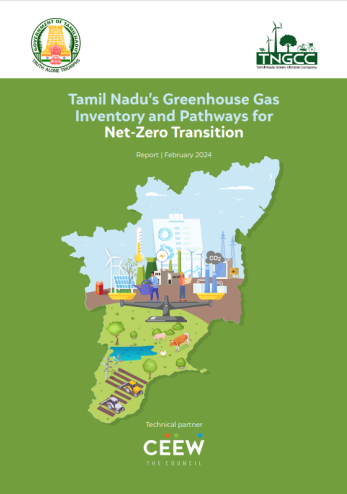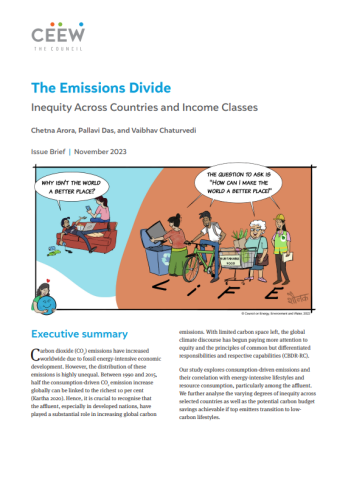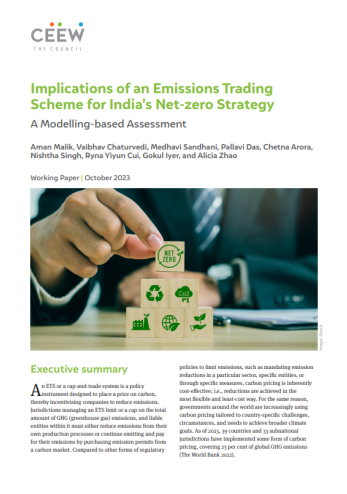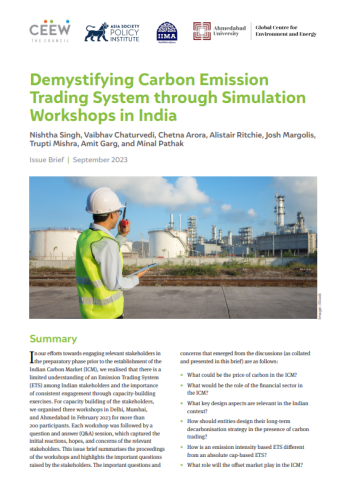Report
India’s Vision Towards a Net-Zero Economy
Stakeholder Perspectives
Ankur Malyan, Pallavi Das, Puneet Kamboj, Sweta Jha, Ujjawal and Vaibhav Chaturvedi
March 2022 | Low-carbon Economy
Suggested citation: Malyan, Ankur, Pallavi Das, Puneet Kamboj, Sweta Jha, Ujjawal and Vaibhav Chaturvedi. 2022. India’s Vision Towards a Net-Zero Economy: Stakeholder Perspectives. New Delhi: Council on Energy, Environment and Water.
Overview
This stakeholder survey captures the perspectives of different sector professionals towards India’s low carbon vision and its potential impact on the economy. It highlights the perceptions around fossil fuels and alternative fuels, mitigation instruments such as carbon taxes, fuel choices and technology choices for decarbonising different sectors.
Conducted between July and August 2021, the survey includes responses from more than 250 professionals from over 150 institutions in India and abroad. The respondents are from eight different stakeholder groups –think-tank/research institutions; academia; industry; government ministries and departments; bilateral and multilateral institutions; financial institutions; philanthropic foundations and others.
Key Findings
- A majority of the respondents were of the opinion that India should enhance its Nationally Determined Contributions(NDCs).
- Three-fourths of the respondents said that India should have a net-zero target, which was later announced at COP-26.
- The highest number of respondents chose 2060 and beyond as the timeline when India would achieve net-zero, thereby, concurring with India’s decision to achieve net-zero by 2070.
- Nearly two-thirds of the respondents were in consensus that coal use will peak in India by 2040. A majority of the respondents said that India will phase out coal beyond 2050, with most stakeholders choosing 2060 and beyond.
Could India become a coal-free nation?
Source: Authors’ analysis
Note: *In COP26, India committed for phase down of coal not phase out. The question asked was specific to phase out.
- 36 per cent and 34 per cent respondents are of the opinion that hydrogen could be an alternative fuel choice in industry and transport sector respectively.
- However, for nearly 40 per cent of the respondents, biofuels could essentially be an alternative choice in the transport sector.
- More than three-fourths of the respondents were of the opinion that India should have explicit carbon pricing. Respondents preferred Emissions Trading System (ETS) and carbon taxes almost equally.
- Nearly two-thirds of the respondents said that Carbon Capture Storage (CCS) would have a critical role to play in India’s decarbonisation objectives.
- Technology choices determine the next steps within a sector. Majority of the respondents chose solar in power, energy efficiency in industry, green building architecture in buildings, and electric vehicles in the transport sector. The chart below shows promising technologies across sectors.
Promising technologies across sectors
Source: Authors’ analysis
Leading India’s net-zero commitment to reality would need strengthened engagement among stakeholders as well as alignment in the vision towards a carbon-neutral India.







